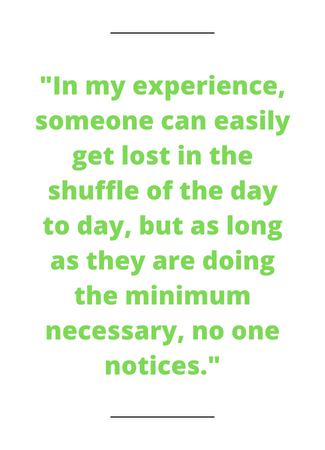Anonymous Promo Pros Discuss “Quiet Quitting” In Their Companies & The Industry

Not everyone taking part in the Great Resignation quits their jobs.
The viral trend of “quiet quitting” defines those workers who remain in their positions and continue to collect paychecks, but describe themselves as unengaged or unwilling to go above and beyond the boundaries of their job description. And just as the Great Resignation itself has affected the promotional products industry, so too has its secondary impact, quiet quitting.
That doesn’t make promo unique. A recent Gallup poll finds that at least half of the U.S. workforce is giving the minimum amount of effort and are psychologically detached from their jobs.
Younger millennials and Gen Z employees are the most at risk of disengaging, Gallup finds, citing key changes since the beginning of pandemic, as younger employees report significant declines in feeling cared about and receiving opportunities to develop from their managers.
A phenomenon that is being defined on the fly by human resource departments and organizational psychologists, quiet quitting is not an attempt at corporate sabotage, but something more akin to employees making personal decisions about their life priorities.
“Millennials dominate the workforce, and this is our response,” a corporate employee from this group at one large distributor told PPAI Media. “We have lives to live. It’s not personal.”
For an increasing number of people, working at night and on weekends or extending themselves to cover for unfilled positions isn’t worth the trouble.
More seasoned industry pros say that quiet quitting is nothing new, but a different take on an age-old paradigm.
“Is this really a new phenomenon? Back in the old days, we referred to these employees as lifers – truly disengaged, just collecting a paycheck,” says the veteran owner of a supplier based in the Southeast. “With work from home, it may be more pronounced, or a lack of loyalty in some of the newer generations may exacerbate the issue.”
To understand how the apparent trend may impact our industry, PPAI Media asked four professionals with a variety of roles and from an assortment of organization types about their takes on this phenomenon, whether they’ve observed fellow employees or team members who fit the definition of quiet quitting, and what can be done to re-engage those industry pros.
***
Large Distributor, Corporate Employee
“Quiet quitting is the result of the economy and realizing there’s more to life than working. Let’s be honest, this should be the scariest thing to any employers. There are thousands of jobs that can be done remotely now and applied for with the click of a button.
Quiet quitting is a liberating feeling. The powers are shifting.”

Mid-size Supplier (Midwest), Owner/Executive
“I have actually seen it a lot in other places. It is interesting that they are putting a name to it now. In larger companies, it is really easy to see how it is possible and the space for it to occur. In my experience, someone can easily get lost in the shuffle of the day to day, but as long as they are doing the minimum necessary, no one notices.
One thing I learned from another industry supplier that has a lot more employees working for them than we do was the “leadership walkaround.” This person knew every name of every person that he passed by on his walks and would actively engage with them on a regular basis. I have really tried to embody this as well. I think it helps people feel valued and connected to what is happening within the company.
In our company, we would notice production falling off, because we are staying close to it. We do have people that we have to consistently push to stay engaged, but we try to attack that on multiple levels.
One thing I heard from a controller that they were doing to keep their remote teams engaged was setting up “water cooler” chat sessions. They would schedule 15-20 minute meetings to just chat about weekends or other things to keep the employees feeling like they are part of the team.”
Mid-size Distributor, Sales Rep
“In our industry this is very dangerous in a few ways.
From a supplier standpoint, if you have quiet quitters doing the bare minimum, are they going to call out the art that might mess up on the print run or double-check the shipping address if it looks wrong? Those can lead to costly issues and relationships hurt, either with the supplier to the distributor, or distributor to client.
Every work environment is different, but I would say leaders should not be afraid to engage the work team. Ask what motivates them to do better. Ask what improvements can be made. Listen and, where possible, implement.
I have seen many times in my career where frontline employees have thoughts or ideas on how something can be improved, either in a worker experience aspect or a productivity aspect, and yet they feel it falls flat because they never hear about it again. So why bother mentioning if nothing will happen?”
Small Supplier (Southeast), Owner/Executive
“As Bobby Jones said about Jack Nicklaus many years ago, he plays a game with which I am unfamiliar. Is quiet quitting new or just a moniker for something that has existed forever?
I think that anyone who is disengaged may be suffering from burnout, not some new phenomenon. These have been trying times since early 2020. Financial issues (personal and business), fear of being trapped, limited upward mobility, etc. These other issues may be contributing to the general malaise.”

